


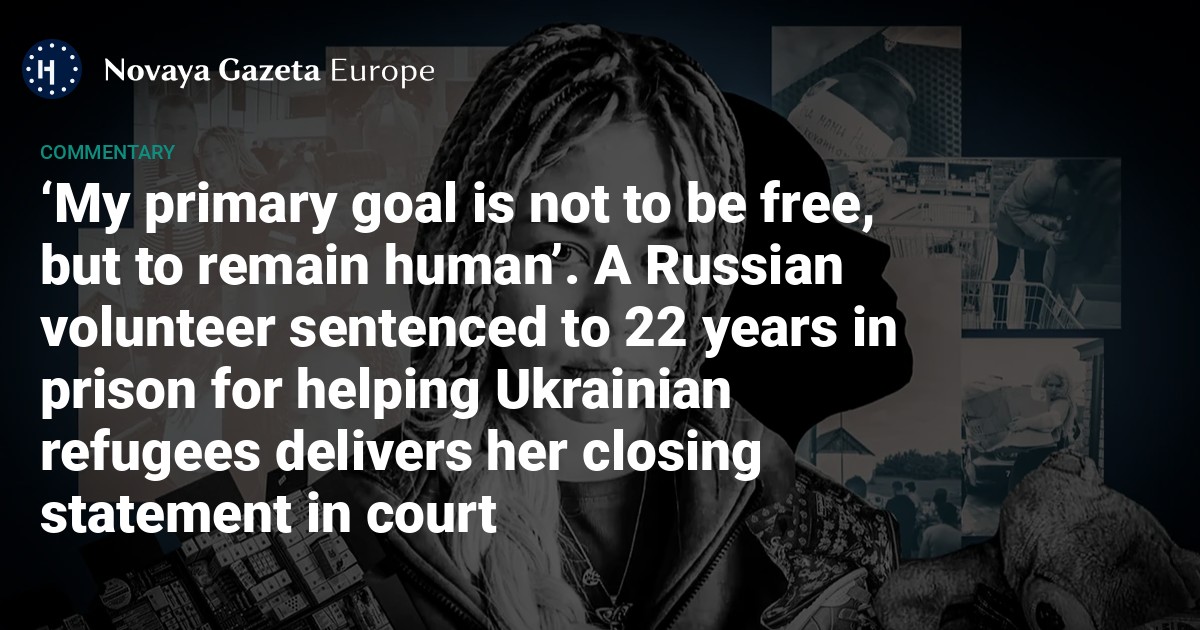
In February 2022, shortly after the Russian invasion of Ukraine began, Nadezhda Rossinskaya, a photographer from the Russian border region of Belgorod, agreed to shelter some acquaintances fleeing war-torn Kharkiv in eastern Ukraine. But what began as a simple act of compassion quickly grew into an enterprise helping displaced people — and would ultimately land her with a 22-year sentence for treason.
Rossinskaya — also known under the pseudonym Nadine Geisler — and her sister Olyona protested the war from the very beginning. In March 2022, they took part in a silent protest in Belgorod’s central square, wearing clothes the colours of the Ukrainian flag and handing out flowers. They were detained by the police, but only faced an administrative charge for participating in an unauthorised demonstration.
Over time, the sisters began to focus more on humanitarian aid. They collected donations and used the money to support displaced people. Other women volunteers joined their efforts. Rossinskaya and her team — jokingly nicknamed the Army of Beauties, a tongue-in-cheek reference to their all-female, volunteer-led group — were among the very few who delivered humanitarian aid to Russian-occupied areas of Ukraine’s Kharkiv region in 2022, despite the risk of being shelled or captured by either side.
After Ukraine launched a successful counteroffensive in September 2022 and reclaimed much of the Kharkiv region, the Beauties stopped crossing the border with humanitarian aid, shifting their focus entirely to supporting refugees already inside Russia.
I first met Rossinskaya in the spring of 2023. I visited her at what served as her aid distribution centre — a regular house where she was living. The walls inside were painted in shades of pink and purple. There was a small couch, a bulletproof vest she had used during her trips into occupied Ukraine, and dozens — perhaps even hundreds — of large sacks filled with humanitarian supplies. Each sack had a label with a delivery address. Two cats also lived in the house; both had been rescued in Ukraine and evacuated from areas under shelling.
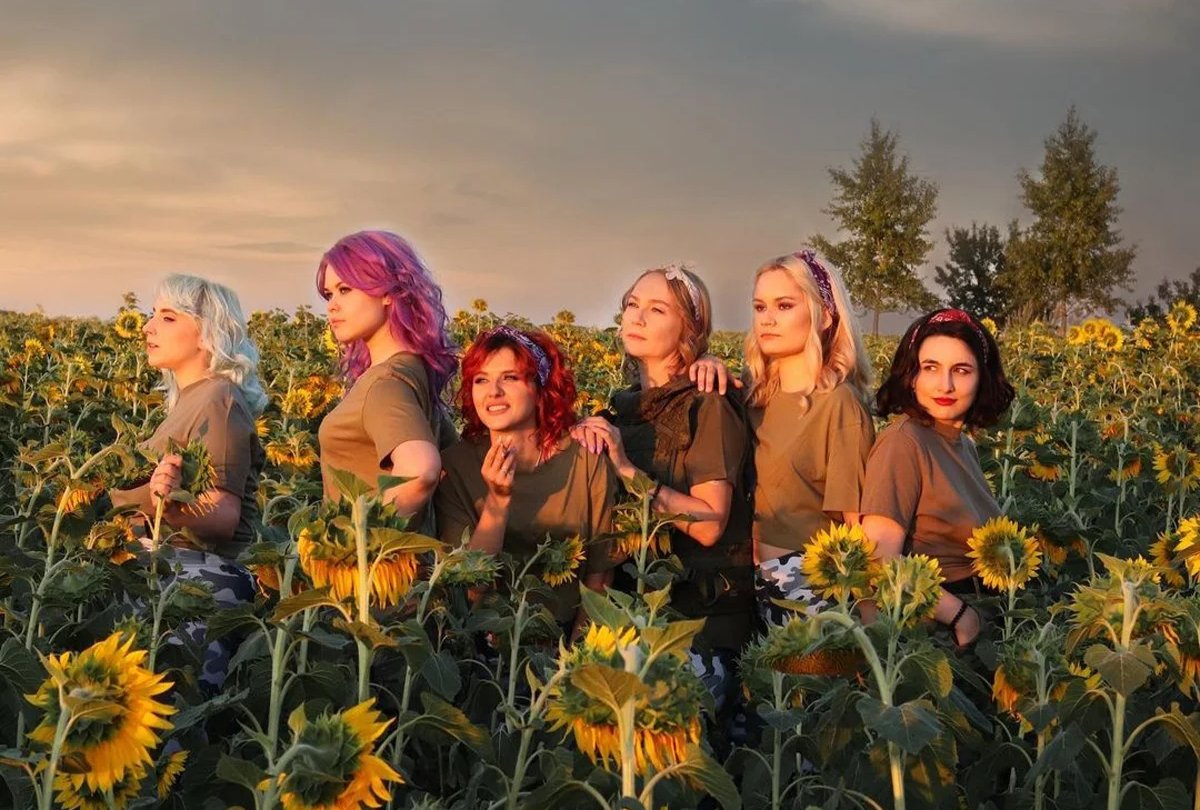
Rossinskaya (second from the left) with fellow volunteers. Photo: Army of Beauties
Inside the aid warehouse where we first met, one wall stood out. It had been transformed into a kind of guestbook, with dozens of handwritten messages of gratitude from the people they had helped — refugees, displaced families, elderly Ukrainians — pinned to the wall.
But in April 2023, Rossinskaya’s life in Belgorod took a drastic turn. Amid growing threats and pressure from Russian authorities, she left the country and moved to Georgia, where she remained for nearly a year. She continued coordinating aid efforts remotely.
Then, in February 2024, Rossinskaya decided to return to Belgorod. Just days after her arrival, she was detained by officers of Russia’s Federal Security Service (FSB) and charged with treason, public calls against state security, and facilitating terrorist activities.
Placed in pretrial detention where she remained for over a year, Rossinskaya had repeatedly complained of harsh treatment, which included being denied medical assistance despite suffering from severe headaches, tachycardia and deteriorating vision.
As her trial neared its conclusion, the prosecution requested a 27-year prison sentence on Thursday — the maximum term permitted for women under Russian law. The following day, a court in Belgorod sentenced Rossinskaya to 22 years in prison.
Novaya Gazeta Europe has obtained a transcript of the statement Rossinskaya delivered during one of the court’s closed sessions. We present selected excerpts below.
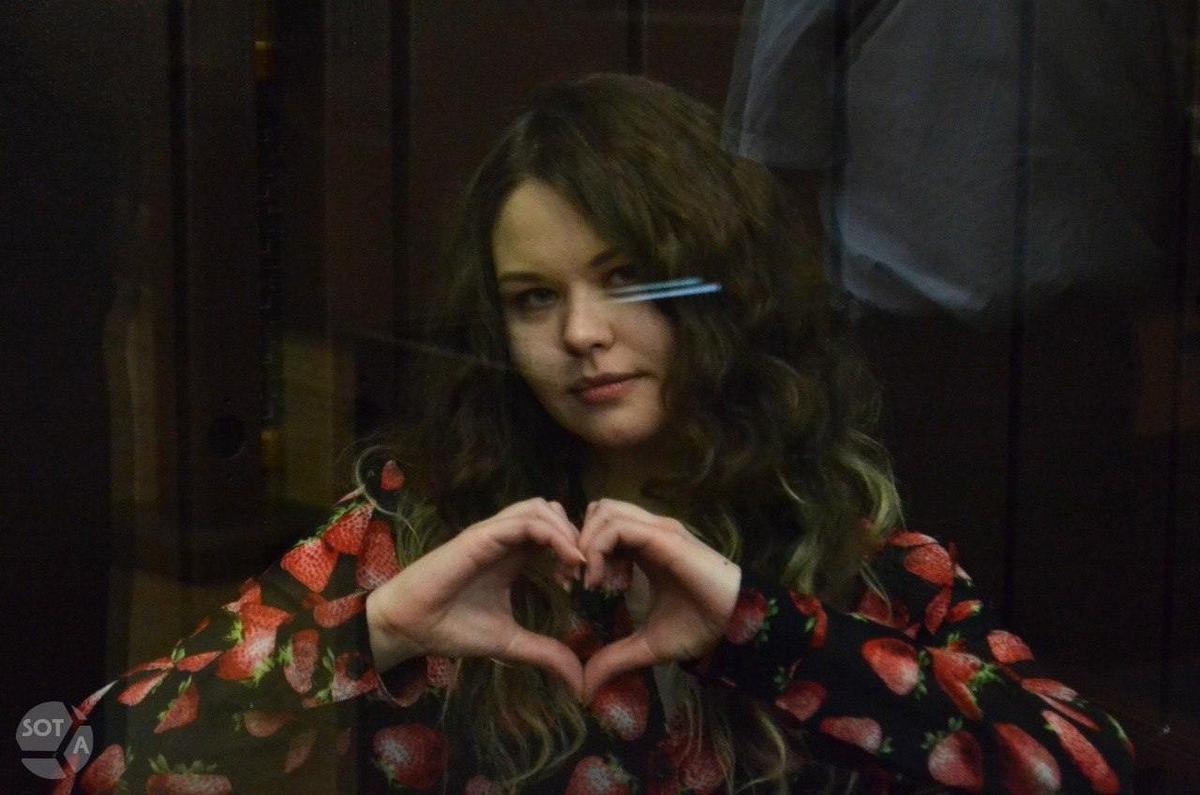
Rossinskaya during her court hearing on Friday. Photo: SOTAvision
“Your Honour, I believe that all 14 volumes of my criminal case are built on lies, theories, and assumptions put forward by the FSB. When you look at the case on its merits, there is no actual evidence of my guilt. As has been stated more than once here, rumours, guesswork and conjecture are not the same as proof. One of the prosecution’s questions was whether Ukrainians had ever thanked me for the help I gave them, and whether they did so publicly. Strangely, this question was addressed to my mother rather than to me. But no one is better placed to answer it than I am.”
“Someone even thanked me for giving their daughter a proper burial — so she wouldn’t just lie forgotten in a morgue.”
“Yes, they thanked me. From the very beginning … when I refused to leave people out on the street with nowhere to sleep. From the very first can of food, the first loaf of bread. I received thanks via telephone and video calls, through messages and comments on my social media pages and group forums, in my posts and stories. And in person, too. They thanked me for saving their lives. For making sure their children were clothed, fed, or received essential medicine. For reuniting children with their mothers after they had gone missing in Russian territory. Someone even thanked me for giving their daughter a proper burial — so she wouldn’t just lie forgotten in a morgue. Others thanked me for helping them see their grandfather alive one last time.”
“People thanked me for paying for critical surgery inside Russia — procedures no one was willing to perform for free, even though the patients were victims of an armed conflict. I was thanked by the chief doctors of hospitals I supplied with medications. Although, frankly, I believe those tasks should never have fallen on the shoulders of ordinary, compassionate Russians. People like us simply stepped in and did the work of the state — out of basic human decency. And we even funded it ourselves.”
“No one’s well-being or higher goals can be achieved or justified at the cost of human lives.”
“I speak about this openly and publicly, without hiding anything or holding back — whether anyone likes it or not. Equally important, all those people thanked me openly as well. They never cared about my citizenship, place of birth, nationality, or the language I spoke. This is where our shared, deeply human values lie.”
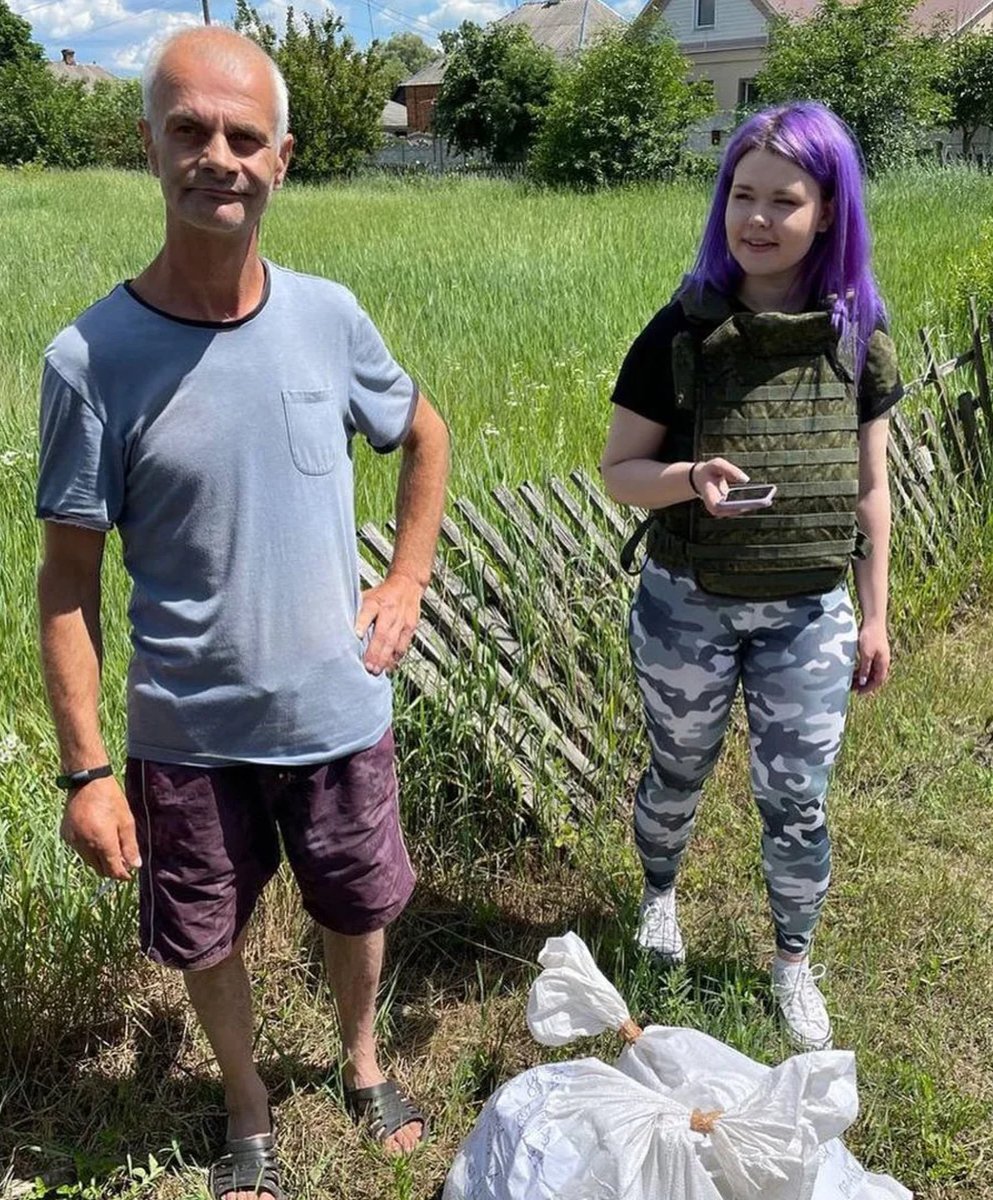
Rossinskaya hands over humanitarian aid to locals in the Kharkiv region in June 2022. Photo: Army of Beauties
“My views and position have been raised so many times during interrogations by both acquaintances and strangers that I decided to answer for myself, since no one ever asked me directly. No one’s well-being or higher goals can be achieved or justified at the cost of human lives. When the rights of one person are denied, the rights of all people are trampled on, and a society of the powerless is doomed to fail.”
“Every witness was asked about my humanitarian work, but until now I have never had the opportunity to fully explain it. In the conflict zone, I provided people with monthly aid packages containing food, medicine, hygiene products, and household supplies. Each package was the size of a 50-litre sack — enough for one person for a month. Every month, I arranged deliveries to nearly every settlement under the control of the Russian Armed Forces. Wherever I could, I did everything in my power to be there and help these people.”
“I will not stop speaking the truth despite the many threats I have faced over these three and a half years.”
“Beyond direct aid to individuals, medical supplies were also delivered to hospitals — places where not only were there no blood-clotting drugs, but sometimes not even basic saline solution. Naturally, assistance was also provided to animals: domestic pets, abandoned animals and those at animal shelters and rescue centres. We purchased pet food, grain, veterinary medicines, cages, and carriers so people could evacuate together with their pets. At one point, I imagined myself stranded somewhere remote, perhaps in a building without electricity or water. My first aid kit would be empty. There would be no food in the fridge or cupboards. I might have animals, maybe even children. What would I need to survive? I thought of these people as if they were my own family. And I am certain those responsible — those with the means to support them — should have been the ones to care for them.”
“Aid to refugees in Belgorod was tailored to their specific needs. We rented housing for them and provided essentials: inflatable mattresses, bedding, cookware, clothes and shoes, food, cleaning products, hygiene products, medicines, and rehabilitation supplies. We paid for surgeries, medical consultations, and visits by the district nurse. We visited the sick and wounded in hospitals and brought everything they needed.”
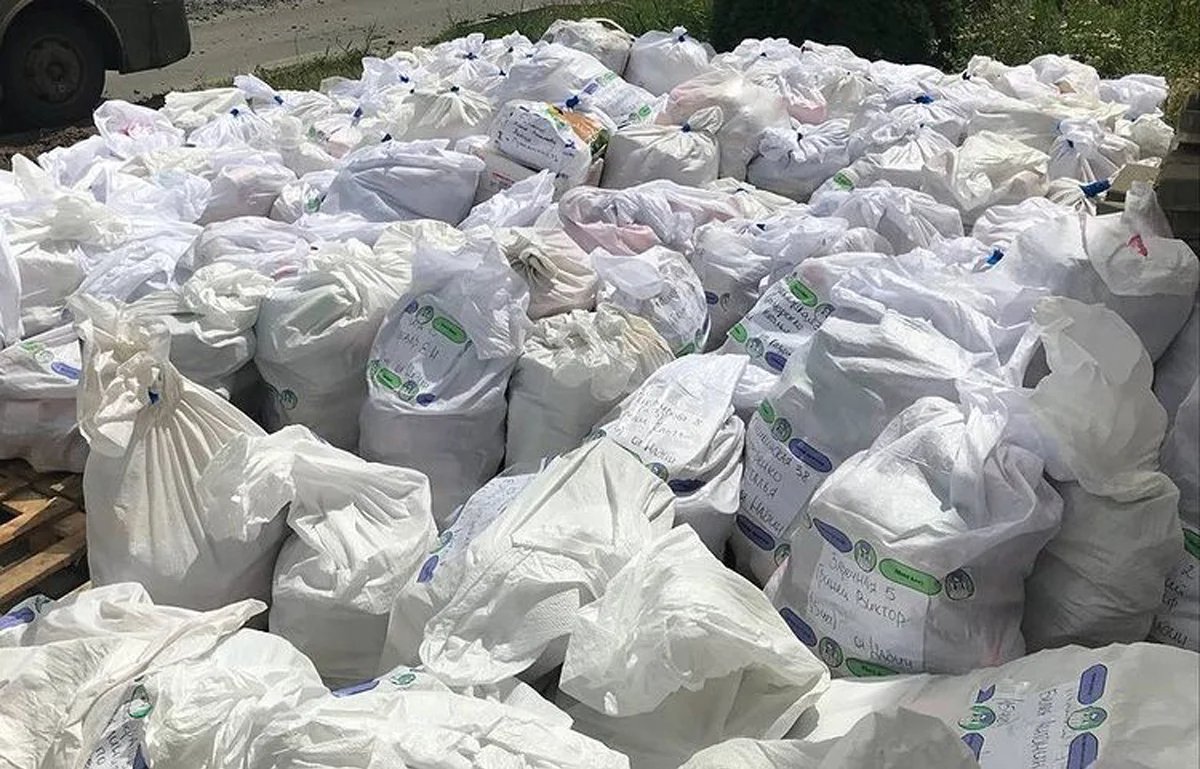
Humanitarian aid packages collected by Rossinskaya and her fellow volunteers. Photo: Army of Beauties
“Throughout my work, I have tried to ensure that every person who has lost literally everything — even their documents — is treated with dignity, knows they are not alone, and feels that their life is valuable and important. That there are people willing to fight for their right to live. My desire to help comes from the value I see in these people and their lives, and from the fact that they suffer undeservedly. My own moral code is a set of laws that protect life itself — the life of humans, animals, and even plants. I will not stop speaking the truth despite the many threats I have faced over these three and a half years. If I am to be punished for this, then what does that say about the nature of those who want to punish me? And worse yet, those who try to give this procedure a semblance of legality.”
“I have been promised that I would rot inside the system, that I would follow in the footsteps of Alexey Navalny.”
“Throughout the investigation, I was pressured into accepting blame I did not deserve. I was blackmailed not for crimes, but for my integrity. I have been promised that I would rot inside the system, that I would follow in the footsteps of Alexey Navalny — which implies threats to my health, and that I would never have children. But even if I am convicted, even if I finish my life behind bars, I will not die childless, as some wished. I have given myself the right to be considered a mother to many children — the mother of all those children I managed to help. And no punishment will ever overshadow the joy of knowing that they are alive and well. They can fabricate case files, intimidate people, and produce witnesses — but they cannot destroy the truth embodied in the tens of thousands of people who were helped. And millions bear witness to this.”
“I fought for every human life by every possible and impossible means. I allowed myself the luxury of having a personal opinion and expressing it publicly. I have spoken — and continue to speak — the truth they wanted to hide. But I am not a criminal or a killer, and there isn’t a drop of blood on my hands. Yet still they demanded 27 years. My primary goal is not to be free, but to remain human. If I am not acquitted, if the requested sentence of 27 years is imposed, then give me 27 years and one day. Let there be something unusual at least — I’ll set a new women’s record.”
Taking into account her time spent in pretrial detention, Rossinskaya is due for release in 2045.
The Russian government has banned independent media. We were forced to leave our country in order to keep doing our job, telling our readers about what is going on Russia, Ukraine and Europe.
We will continue fighting against warfare and dictatorship. We believe that freedom of speech is the most efficient antidote against tyranny. Support us financially to help us fight for peace and freedom.
By clicking the Support button, you agree to the processing of your personal data.
To cancel a regular donation, please write to [email protected]
VPNovaya
Help Russians and Belarusians Access the Truth
